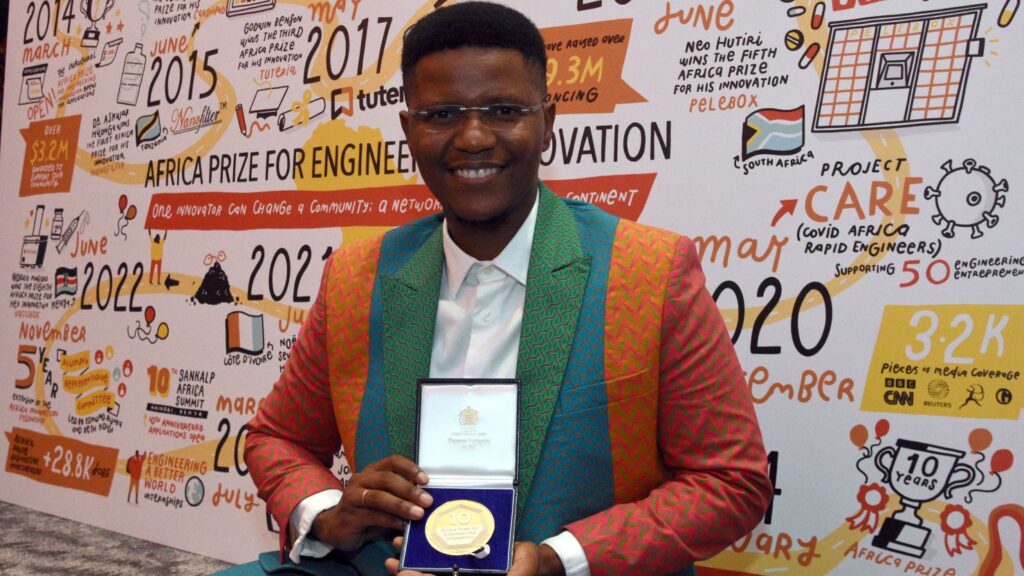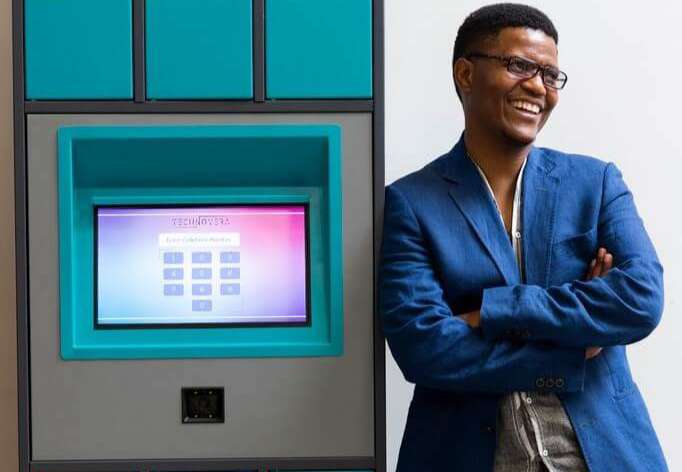
Neo Hutiri, the South African entrepreneur who created Pelebox (a smart locker dispensing system that enables people living with illnesses, like HIV or AIDS, to collect their repeat chronic medication in under 30 minutes – instead of waiting hours in queues at healthcare facilities) has won a major award for African engineering.
After pitching to a group of six judges at a Royal Academy of Engineering ceremony in central London, Hutiri was awarded £50,000 ($63,000) by the Academy , as well as a medal, which was presented by King Charles III’s sister Princess Anne during a ceremony in London on Wednesday evening.

The prize proceeds will help accelerate Hutiri’s Pelebox smart lockers, which are now operational across 123 communities in 3 countries – already impacting the lives of 32,000 patients per month having processed over a million chronic scripts to date.
Says Hutiri: “I am honoured to have been recognised by the Royal Academy of Engineering and to have been selected alongside such an accomplished group of innovators. The Prize was instrumental in accelerating Technovera-Pelebox Smart Lockers over the past five years. It has provided a community that has, in the past and continues to support and inspire as we move forward. Thanks to this award, we aim to scale-up the work that we’ve done to reach more communities.”
The medal is one of 35 anniversary grants, prizes, and accelerator programme awards, together worth over £1 million, being invested in African innovators solving key development challenges on the continent by the Royal Academy of Engineering. The programme is Africa’s biggest prize dedicated to engineering innovation and supporting entrepreneurs to maximise their impact and marks its 10th anniversary this year.
